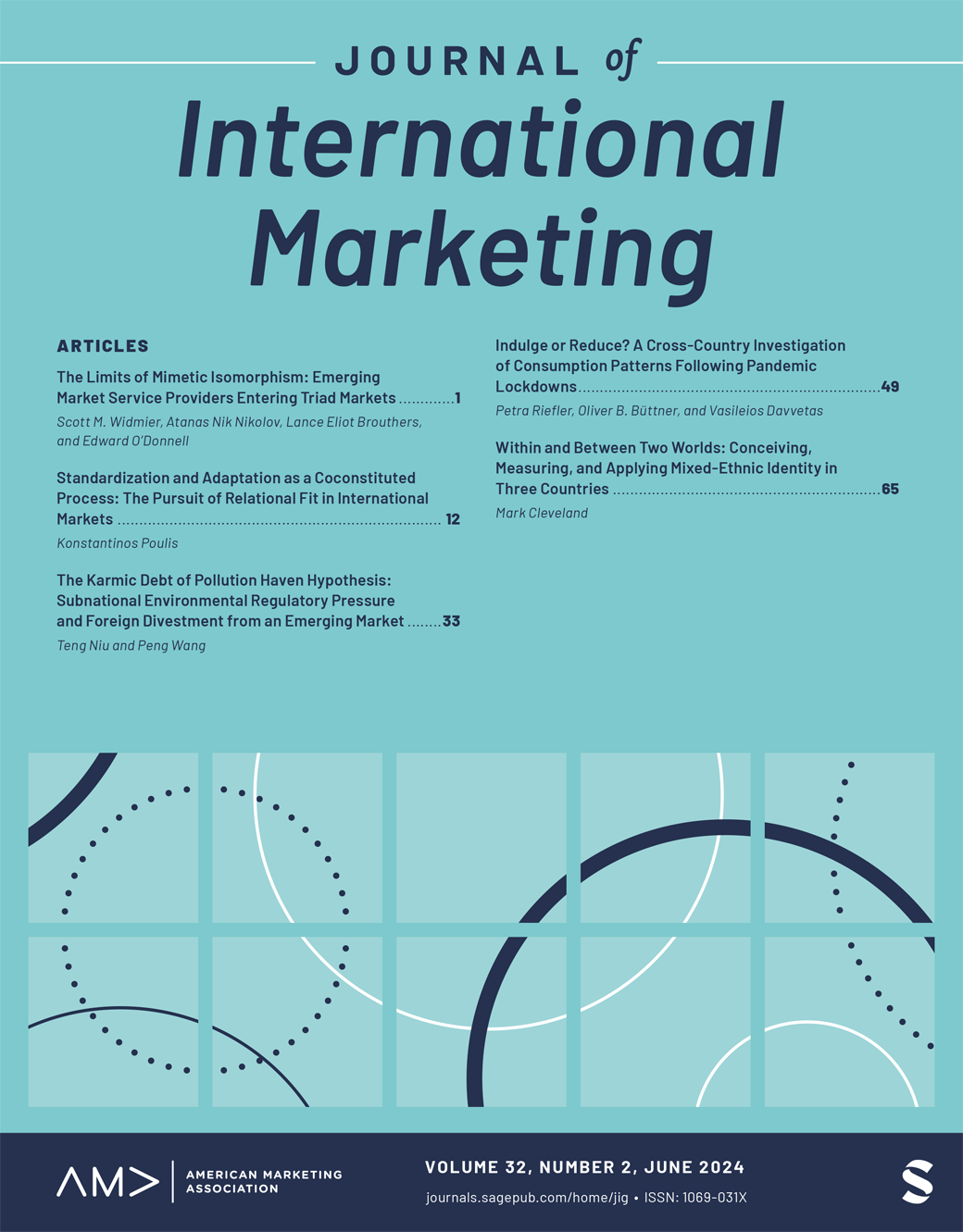快讯产品危害危机后消费者对全球和本地品牌评价标准的转变
IF 4.2
2区 管理学
Q1 BUSINESS
引用次数: 0
摘要
作者以社会心理学中的标准转移理论为基础,提出全球品牌与本土品牌是影响消费者对新兴市场产品危害危机反应的一个重要分类。具体来说,全球品牌和本地品牌所依附的不同关联会造成标准的变化,并导致不同的消费者预期和评价。在四个主要实验和两个补充实验中,作者证明新兴市场的消费者对全球(相对于本地)品牌的产品危害危机反应更为消极。消费者对全球品牌的初始期望值更高,是导致他们对失败做出更明显反应的根本原因。作者证明了哪些具体的期望是由围绕全球和本土品牌的标准变化所驱动的,并将产品类别确定为一个相关的边界条件。最后,与全球品牌相比,具有高度民族中心主义的消费者更倾向于在产品危害危机发生后由本土品牌提供赔偿。研究结果对品牌管理和危机管理策略具有重要意义。本文章由计算机程序翻译,如有差异,请以英文原文为准。
EXPRESS: Shifting Standards in Consumer Evaluations of Global and Local Brands after Product-harm Crises
Building on shifting standards theory from social psychology, the authors suggest global versus local branding as an important categorization that affects consumers’ reactions to product-harm crises in emerging markets. Specifically, the distinct associations attached to global and local brands create shifting standards and lead to differential consumer expectations and evaluations. In four main and two supplementary experiments, the authors demonstrate that consumers from emerging markets react more negatively toward a product-harm crisis by global (versus local) brands. Higher initial expectations from global brands are the underlying cause for this more pronounced consumer response to failures. The authors demonstrate which specific expectations are driven by the shifting standards around global and local brands and identify product category as a relevant boundary condition. Finally, consumers with high ethnocentrism appreciate it directionally more when a local brand provides compensation after a product-harm crisis compared to when a global brand provides compensation. The results have important implications for brand management and crisis management strategies.
求助全文
通过发布文献求助,成功后即可免费获取论文全文。
去求助
来源期刊

Journal of International Marketing
BUSINESS-
CiteScore
8.70
自引率
17.20%
发文量
28
期刊介绍:
As the globalization of markets continues at a rapid pace, business practitioners and educators alike face the challenge of staying current with the developments. Marketing managers require a source of new information and insights on international business events. International marketing educators require a forum for disseminating their thoughts and research findings. Journal of International Marketing(JIM) is an international, peer-reviewed journal dedicated to advancing international marketing practice, research, and theory. Contributions addressing any aspect of international marketing management are published each quarter.
 求助内容:
求助内容: 应助结果提醒方式:
应助结果提醒方式:


